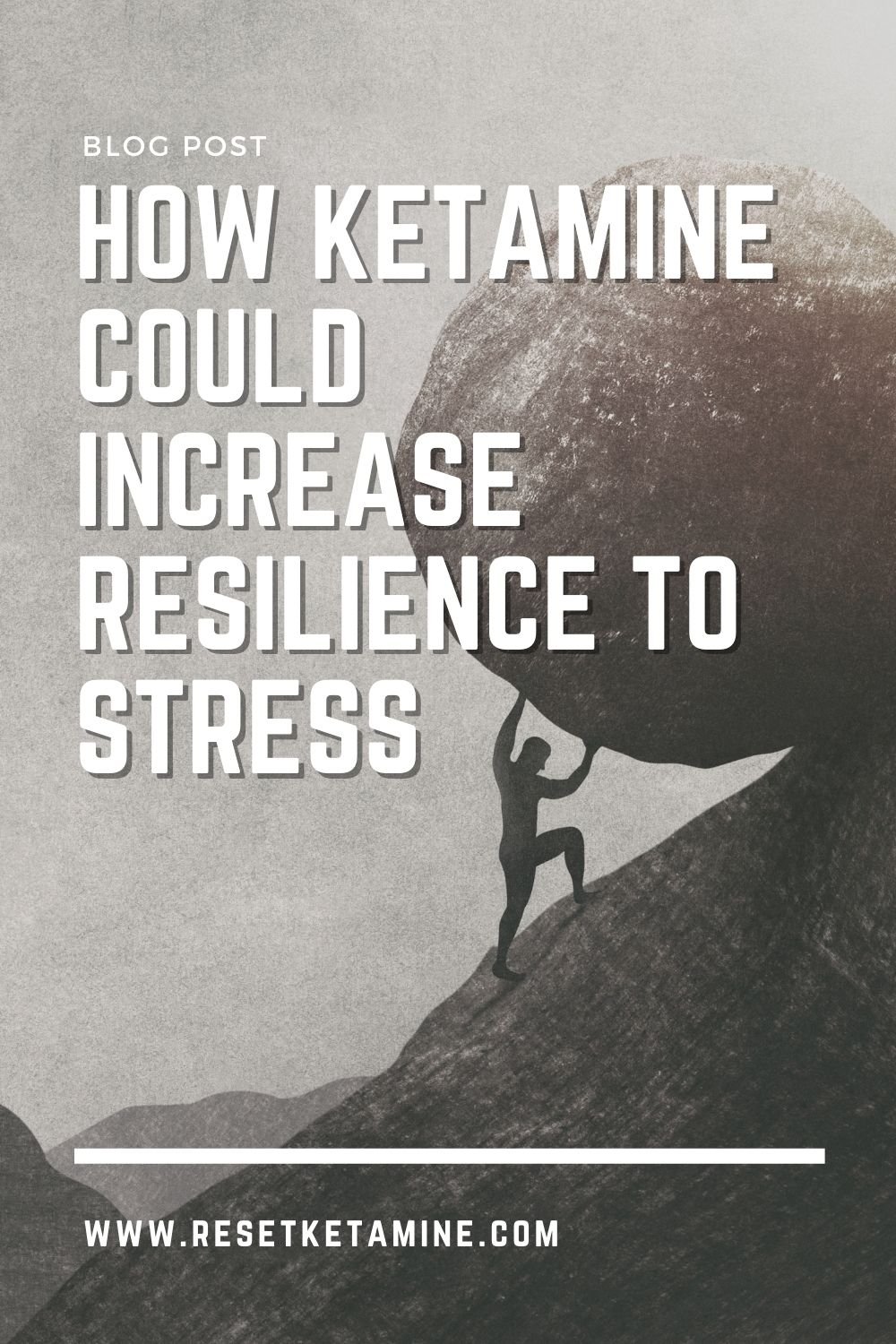What if, in the future, depression and anxiety could be addressed like the flu? What if instead of treating the disorder when it is in full-swing, what if we could protect against it with a vaccine-like medication? What if the future is now and the medication is ketamine?!?
In a study by Brachman et al, mice were put into stress inducing models/situations (exposed to chronic social defeat, learned helplessness, or chronic corticosterone exposure). The mice who did not receive the prophylactic ketamine, demonstrated depressive-like behaviors, while the mice given ketamine appeared to be protected against depressive like behaviors.
Many people have strong social support and other factors which put them at a lower risk of developing debilitating depression. Their resilience protects them against psychiatric disorders brought on by stress. However, there are many other people who don’t have the same resilience, or even normally resilient individuals affected by traumatic events such as first responders and military troops who may benefit from ketamine.
What is exciting about this study is the future implications it holds. Here at Reset Ketamine we like to focus on a bright and empowering future, and we’re excited by the prospect of ketamine not just transforming lives but also protecting and strengthening into the future.
Watch Dr. Rebecca Brachman’s TED talk on this topic below!
CONTACT RESET KETAMINE
IF YOU OR SOMEONE YOU LOVE IS SUFFERING FROM ANXIETY, PTSD, DEPRESSION, OCD, MIGRAINES, FIBROMYALGIA, OR CHRONIC PAIN, PLEASE CONTACT US NOW FOR A CONSULTATION TO SEE IF YOU WOULD BE AN IDEAL CANDIDATE FOR KETAMINE INFUSIONS.
SERVING PALM SPRINGS, PALM DESERT, RANCHO MIRAGE, CATHEDRAL CITY, JOSHUA TREE, 29 PALMS, IDYLLWILD, REDLANDS, LOMA LINDA, BEAUMONT, BANNING, ONTARIO, RIVERSIDE, LOS ANGELES, ORANGE COUNTY, SAN DIEGO, HOLLYWOOD, LONG BEACH, SANTA MONICA, AND ALL OF CALIFORNIA.

What if depression and anxiety could be addressed like the flu in the future? What if instead of treating the disorder when it is in full swing, what if we could protect against it with a vaccine-like medication? What if the future is now and the medication is ketamine?!?
What is the unconscious mind?
Each individual has a conscious (what we are aware of) and unconscious (what we are unaware of) part of the mind. Sigmund Freud once described the mind using the metaphor of an iceberg. When you look at an iceberg you'll see the top of it above water which can be quite big, but when you look underneath deep down into the ocean you'll see a larger amount of the iceberg. What's interesting is the vast majority of the iceberg is actually underneath and invisible. Freud uses the iceberg metaphor to describe the conscious mind and the unconscious mind. The conscious mind is the visible portion and the unconscious mind is the portion not visible above water. The unconscious mind controls a lot of what we think and how we behave. And we're simply unaware of it.
My computer was acting weird. It was slow and buggy. I had multiple applications running in the background, with a handful of windows opened. Do I really need to watch a funny video, read the news, and check the weather all at the same time? Yes!
To simplify the question, we will limit the discussion to ketamine and its role in depression.
The short answers are: 1) Unawareness of ketamine as a treatment 2) Ketamine is not FDA approved for mood disorders 3) Ketamine is considered an experimental or investigational drug
But to leave it at this doesn’t fully explain it. To explore more, let’s do a deeper dive into each of these answers.
A couple of question that we get asked often are, "What is the calculation that you use for dosing ketamine? What’s the right dose for the infusion?” The answer as you can imagine is, “It Depends.” Read on to learn more.
We often get asked this question: "How long is the time frame between ketamine booster infusions?" The real answer and it’s no surprise is... it depends.
As you already may know we recommend an initial six treatments over a period of two to three weeks. This is based upon the evidence from the clinical studies. Then depending on your response and how you feel, you may need a booster anywhere from every two weeks to every four weeks, sometimes even out to two or three months after the initiation series.
In this post, we wanted to share with you a question we’ve been asked several times: "What is your opinion on eating/drinking before ketamine infusions?”
No Drinking or Eating For At Least 3 Hours
At our clinic, we typically recommend that someone does not eat or drink for three hours prior to their ketamine treatments. Why? Well, some of the side effects of ketamine is nausea and vomiting.
Ketamine typically is not used for the initial normal healthy grieving period but if this grief transitions into depression, ketamine is definitely something to consider. One of the benefits of ketamine is it may help you gain a different perspective about the feelings you are experiencing.
Are ketamine infusions a valid alternative to electroconvulsive therapy? Research is suggesting that if may very well be. Equally effective as ECT, with less cognitive impairment, and faster results ketamine infusions are proving itself to be an effective treatment.










What’s the difference between intranasal esketamine (aka Spravato) and intravenous ketamine infusions? Learn what you need to know about the difference between esketamine and racemic intravenous ketamine here at our blog!